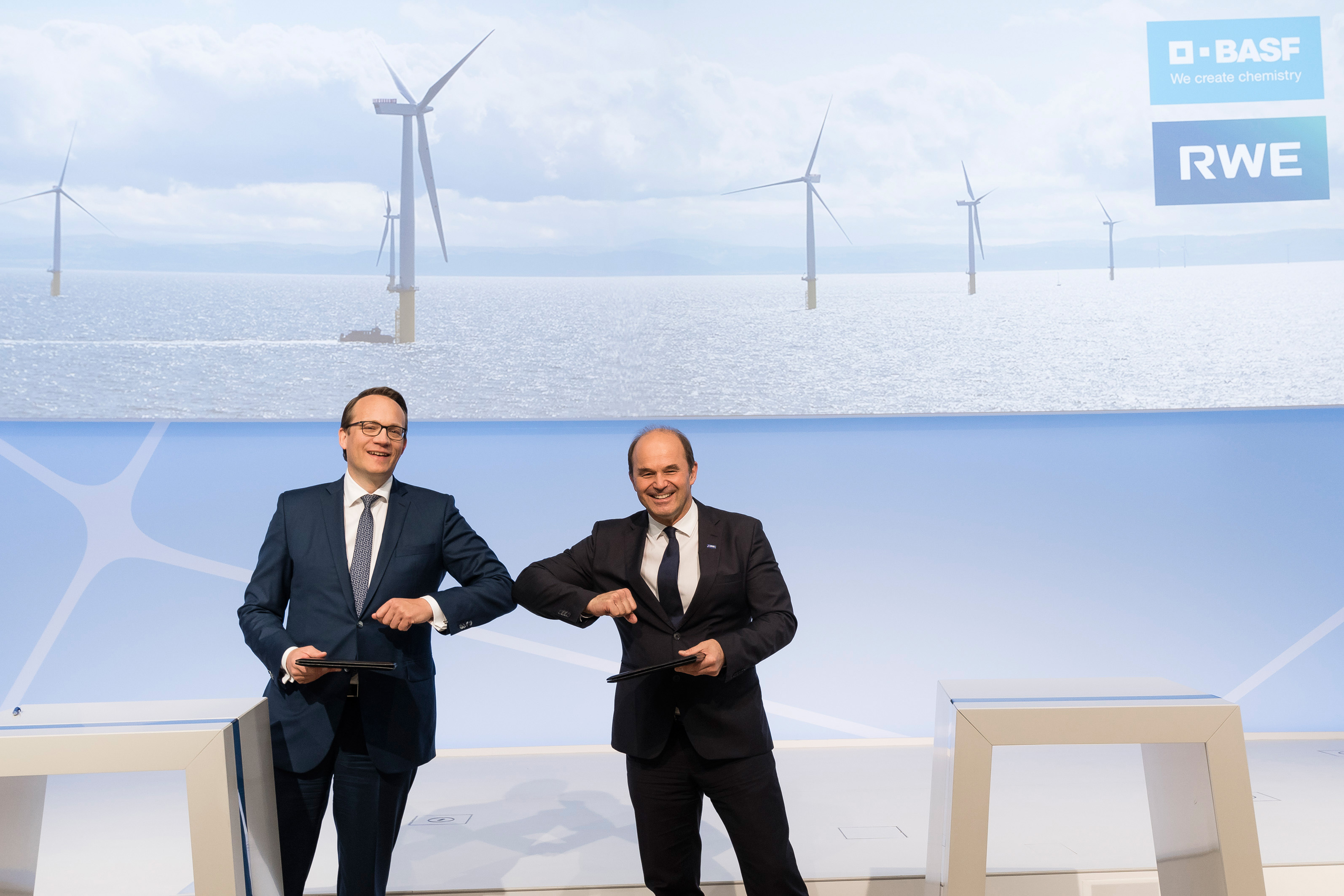
BASF has been working with German energy group RWE to increase its use of renewable energy and use more sustainable technologies.
This may involve building an offshore wind farm with a capacity of 2 gigawatts (GW) to power its Ludwigshafen, Germany chemical plant.
The aim is to electrify the production processes for basic chemicals, which are currently based on fossil fuels, the company said.
The project will also involve using CO2-free technologies such as electrically heated steam cracker furnaces to produce petrochemicals. According to BASF, it could reduce around 3.8 million metric tons of CO2 emissions per year, including 2.8 million tons at Ludwigshafen.
‘Without the availability of sufficient volumes of electricity from renewable sources at competitive prices, our future transformation will not be possible,’ said Martin Brudermüller, chairman of BASF. ‘This task is only achievable with innovative and intensive cooperation between politics and industry.’
This story uses material from BASF, with editorial changes made by Materials Today. The views expressed in this article do not necessarily represent those of Elsevier.
